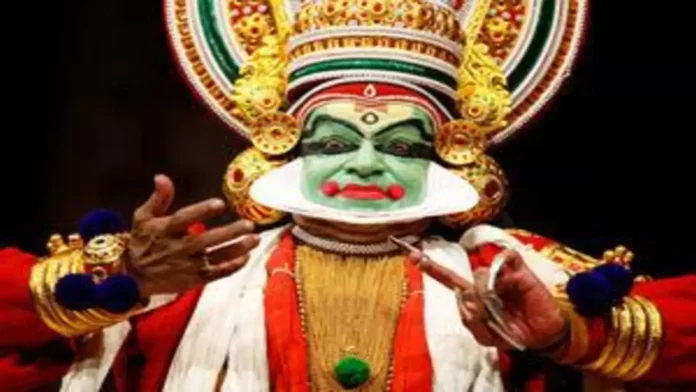Introduction
Entertainment has long been a source of joy, inspiration, and cultural expression for humankind. From music to theater, art to festivals, we are constantly seeking ways to be entertained and immersed in experiences that uplift our spirits. But have you ever wondered about the origins of these various forms of entertainment? Specifically, which ones were inspired by religion? Let’s explore this intriguing question and uncover the rich connections between religion and entertainment.
Historical Context: Religion and Entertainment
To understand the relationship between religion and entertainment, we must delve into history. Throughout the ages, religious practices have often incorporated elements of entertainment. Rituals and ceremonies served as early forms of religious entertainment, engaging the senses and creating a collective experience of devotion. These rituals included music, dance, and dramatic performances that brought religious narratives to life.
Religious Art: The Divine Inspiration
One of the most profound ways in which religion inspired entertainment is through the creation of art. Visual arts, in particular, have been deeply influenced by religious themes and symbolism. Sacred paintings, adorned with intricate details and rich colors, sought to depict religious figures and stories. Sculptures and architectural masterpieces, such as cathedrals and temples, were designed as awe-inspiring spaces for worship and contemplation. The intricate beauty of stained glass windows and mosaics in religious buildings also served to inspire and uplift believers.
Music and Devotion: Harmonizing the Divine
Music has always played a significant role in religious expression. Chants, hymns, and sacred songs were composed to praise and worship deities, conveying devotion and invoking a sense of spirituality. Traditional musical instruments, such as the organ or the sitar, were utilized in religious ceremonies to create a harmonious atmosphere. Choirs and musical ensembles continue to enrich religious services, enhancing the spiritual experience through melodic melodies and harmonies.
Theatre and Religious Drama: Bringing Scriptures to Life
The theatrical arts have often drawn inspiration from religious narratives. Religious drama emerged as a form of entertainment, bringing scriptures to life through staged performances. Mystery plays and passion plays portrayed biblical stories, capturing the attention and imagination of the audience. Miracle plays and morality plays conveyed religious teachings through allegorical characters and moral dilemmas. Church communities played a pivotal role in staging these theatrical productions, contributing to the cultural and spiritual life of the community.
Pilgrimage and Spiritual Journeys: A Sacred Adventure
Another form of religious-inspired entertainment is pilgrimage. Pilgrimage involves embarking on a journey to a sacred destination, often with the purpose of seeking spiritual growth and divine connection. The act of pilgrimage itself becomes an immersive and transformative experience, offering participants a sense of adventure and a deeper connection to their faith. Pilgrimages include rituals, prayers, and communal activities that engage the participants in a shared spiritual journey.
Religious Festivals: A Celebration of Faith
Religious festivals hold a special place in the hearts of believers and are often deeply intertwined with cultural traditions. These festivals are vibrant, joyous occasions that celebrate faith, commemorate historical events, or honor deities. Parades, processions, and vibrant costumes bring a sense of spectacle to these festivities. Music, dance, and performance arts further enliven the atmosphere, allowing participants to engage with their faith through communal celebration.
Contemporary Adaptations: Religion in Popular Culture
Religion’s influence on entertainment has transcended time, impacting modern popular culture. Films and television series often explore religious themes, drawing upon rich mythologies and spiritual concepts to create compelling narratives. Music, too, finds inspiration in religious traditions, with artists infusing spiritual themes into their lyrics and melodies. Literature, such as novels and poetry, continues to explore the depths of religious concepts, offering readers thought-provoking and introspective experiences.
The Power of Storytelling: Morals and Lessons
At the heart of religious-inspired entertainment lies the power of storytelling. Religious texts are rich with parables, allegories, and moral teachings. These stories serve as vehicles for imparting wisdom, ethics, and spiritual guidance. Even today, these narratives continue to resonate with audiences, shaping our understanding of morality and influencing popular culture. The enduring impact of religious stories underscores the timeless power of storytelling as a form of entertainment.
Conclusion
Religion has undeniably inspired and influenced various forms of entertainment throughout history and continues to do so in the present day. From visual arts to music, theater to festivals, the intersections between religion and entertainment are abundant and diverse. Exploring the rich history and legacy of religious-inspired entertainment not only deepens our understanding of these art forms but also offers insights into the profound connections between faith, culture, and human creativity. So, the next time you engage in a form of entertainment, take a moment to ponder its origins and appreciate the timeless inspiration that religion has brought to our collective enjoyment.


